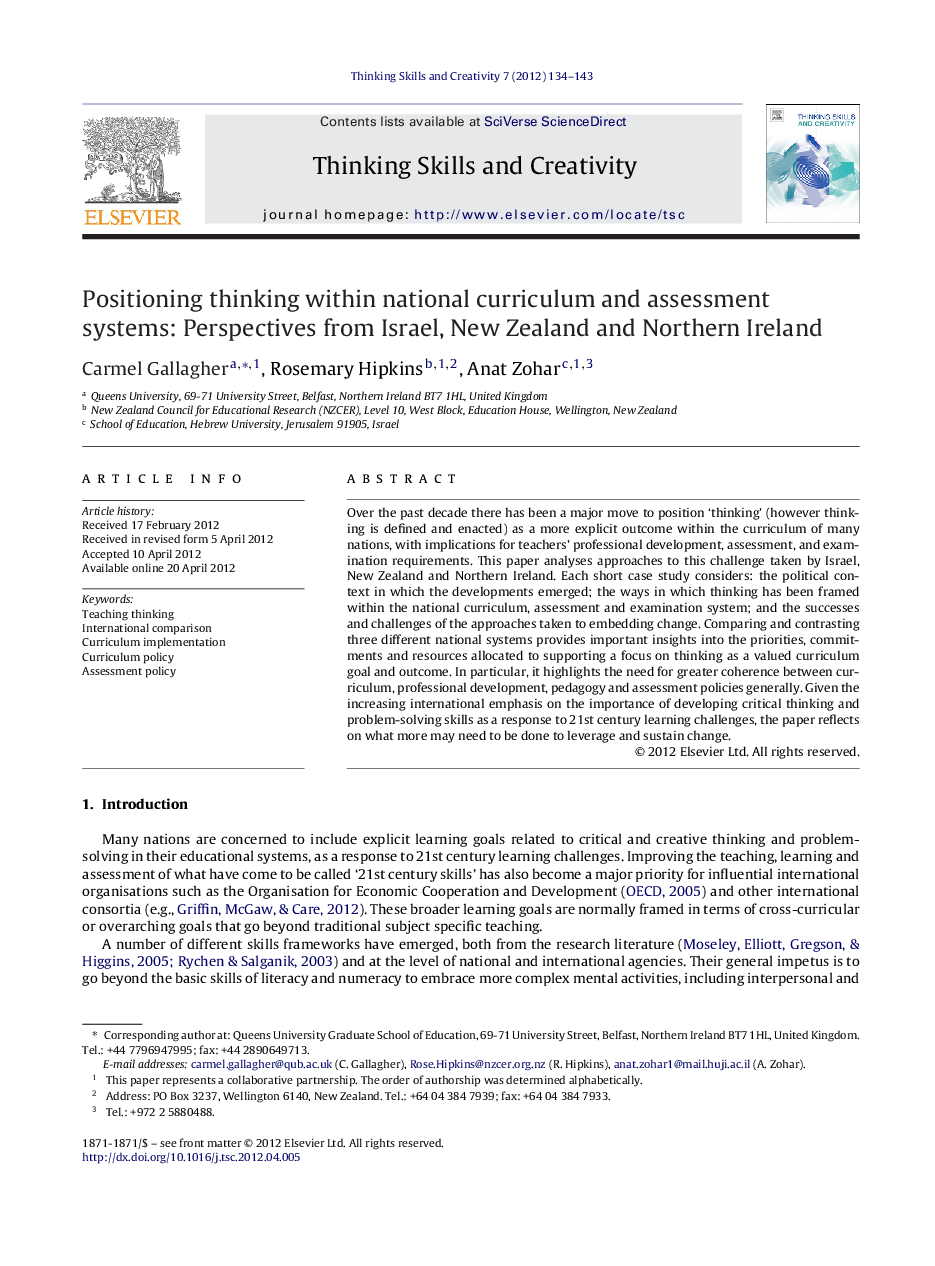| Article ID | Journal | Published Year | Pages | File Type |
|---|---|---|---|---|
| 375678 | Thinking Skills and Creativity | 2012 | 10 Pages |
Over the past decade there has been a major move to position ‘thinking’ (however thinking is defined and enacted) as a more explicit outcome within the curriculum of many nations, with implications for teachers’ professional development, assessment, and examination requirements. This paper analyses approaches to this challenge taken by Israel, New Zealand and Northern Ireland. Each short case study considers: the political context in which the developments emerged; the ways in which thinking has been framed within the national curriculum, assessment and examination system; and the successes and challenges of the approaches taken to embedding change. Comparing and contrasting three different national systems provides important insights into the priorities, commitments and resources allocated to supporting a focus on thinking as a valued curriculum goal and outcome. In particular, it highlights the need for greater coherence between curriculum, professional development, pedagogy and assessment policies generally. Given the increasing international emphasis on the importance of developing critical thinking and problem-solving skills as a response to 21st century learning challenges, the paper reflects on what more may need to be done to leverage and sustain change.
► In this paper we: compare the positioning of thinking in three national curricula. ► Contrast curriculum implementation in Israel, New Zealand and Northern Ireland. ► Discuss alignment of curriculum, professional learning and assessment. ►Identify ongoing challenges for infusion of thinking into national curricula.
